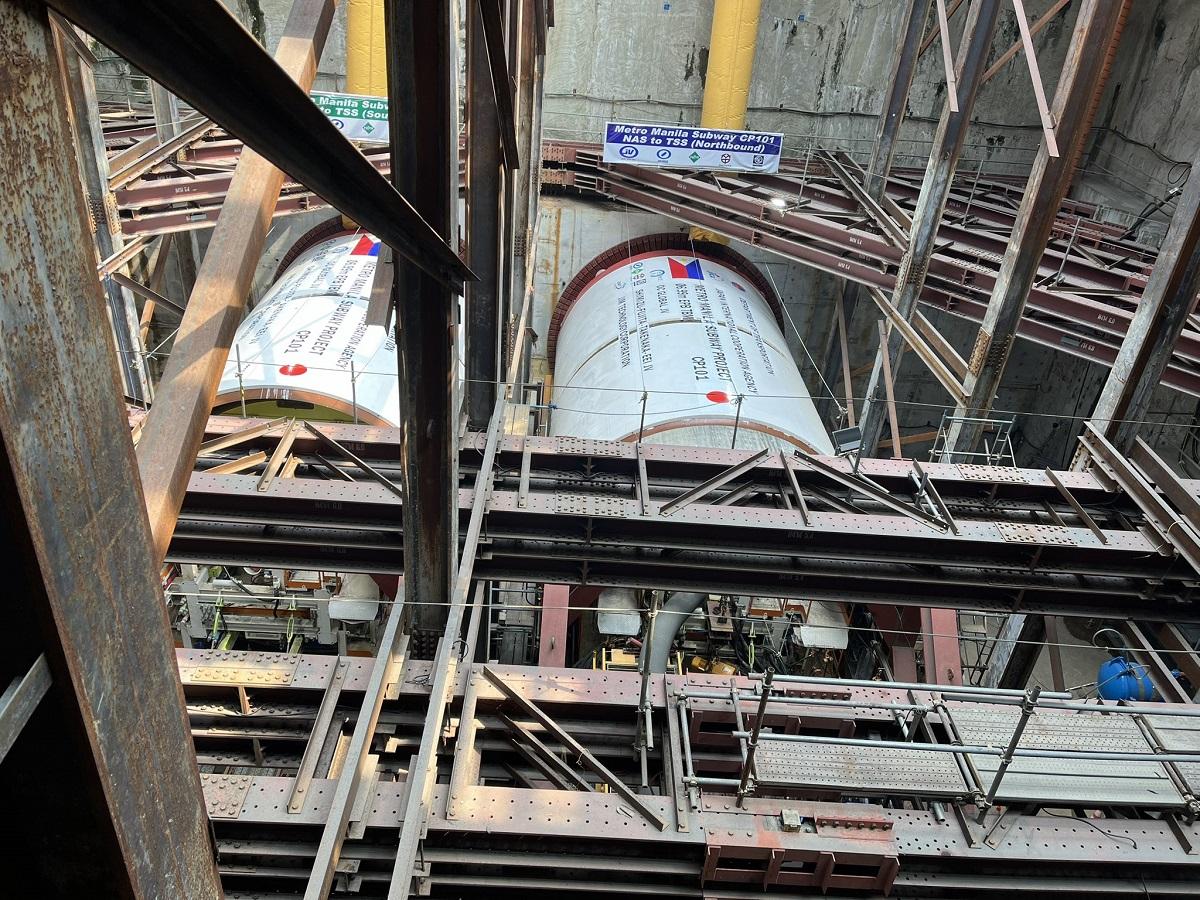Philippines, Japan sign ¥150-B third tranche loan for Metro Manila subway
By TED CORDERO, GMA Integrated News Published March 26, 2024 6:39pm The governments of the Philippines and Japan on Tuesday signed the loan agreement for the third tranche of official development assistance (ODA) financing the country’s first underground railway system, the Metro Manila Subway project. The Philippine Department of Finance (DOF) and the Japan International […]


By TED CORDERO, GMA Integrated News
The governments of the Philippines and Japan on Tuesday signed the loan agreement for the third tranche of official development assistance (ODA) financing the country’s first underground railway system, the Metro Manila Subway project.
The Philippine Department of Finance (DOF) and the Japan International Cooperation Agency (JICA) inked the loan deal amounting to ¥150 billion, or about P55.37 billion.
The first tranche amounting to ¥104.53 billion, or P47.58 billion, was signed in March 2018, while the second tranche, amounting to ¥253.31 billion, or P112.87 billion, was inked in February 2022.
The third tranche loan has an interest rate of 0.30% per year plus a 0.20% per annum of consulting services. The loan is payable for 40 years with a grace period of 10 years.
The entire Metro Manila Subway project currently has an estimated total cost of P488.5 billion, of which P370.7 billion will be financed through an ODA loan from JICA, while P117.7 billion will be covered by the Philippine government.
In his speech during the signing ceremony of the loan agreement, JICA Philippines chief representative Sakamoto Takema said that while the subway project is facing various challenges such as right-of-way acquisition issues, “the project is already gaining a strong momentum.”
“In such regard, we definitely expect that this third tranche loan can accelerate the realization of this epoch-making subway line,” Sakamoto said.
Right-of-way issues
Early this month, the Department of Transportation (DOTr), the subway project implementing agency, admitted that right-of-way issues remain as a key obstacle to the substantial progress of the nation’s first underground train system as construction progress was only at 11%.
The same challenges also prevented the DOTr from awarding the remaining civil works contract packages for the subway project last year.
So far, the DOTr has awarded four contract packages (CP) for the project.
These are the CP 101, covering four stations—East Valenzuela, Quirino Highway, Tandang Sora, and North Avenue—and the depot and the Philippine Railway Institute Building, bagged by a joint venture led by EEI Corp.; the CP 102, comprising the stations in Quezon Avenue and East Avenue, bagged by D.M. Consunji Inc.; the CP 103, bagged by Sumitomo Mitsui Construction Co. Ltd., which involves the stations from Anonas to Camp Aguinaldo; and Megawide Construction Corp. was awarded the CP 104, which covers the Ortigas to Shaw Boulevard segment.
The remaining CPs 105, 108, and 109 are eyed to be awarded by the third quarter of 2024.
CP 1015 involves the underground stations in Kalayaan Avenue and Bonifacio Global City; CP 108 covers Lawton and Senate-DepEd stations; and CP 109 involves the construction of NAIA Terminal 3 station.
The Metro Manila Subway project involves the construction of a depot and a 33-kilometer railway line consisting of 17 stations that will connect Valenzuela City to Pasay City with a spur line to Ninoy Aquino International Airport (NAIA) Terminal 3.
Once operational, the subway is seen to reduce travel time from Valenzuela to NAIA from one hour and 30 minutes to just 35 minutes, servicing 519,000 passengers daily.
Dalton Pass East Alignment
Meanwhile, the Philippine government and JICA also signed a ¥100-billion loan for the Dalton Pass East Alignment Road project.
The loan deal has an interest rate of 0.30% per annum plus a consulting services of 0.20% per year, payable in 40 years with a 10-year grace period.
The project seeks to improve transport capacity and efficiency in the Pan-Philippine Highway Network in Central and Northern Luzon by constructing an alternative road bypassing the existing Dalton Pass, thereby contributing to socioeconomic development of the Central and Northern Luzon.
The Department of Public Works and Highways (DPWH) is the implementing agency of the project, which is targeted to be completed by March 2032. — VDV, GMA Integrated News














